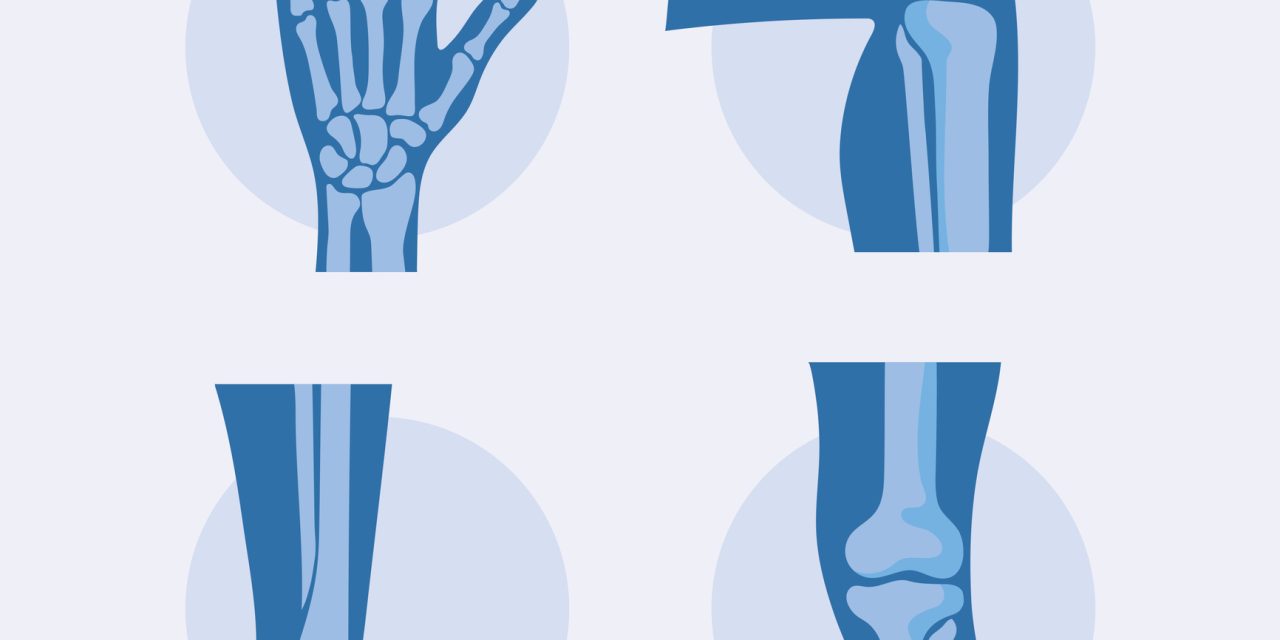
The Janus kinase (JAK) inhibitor upadacitinib proved far superior to placebo for treating patients with psoriatic arthritis (PsA) with inadequate responses to non-biologic disease-modifying antirheumatic drugs (DMARDs) — and a 30 mg dose of the JAK inhibitor was more effective than adalimumab, according to results from the SELECT-PsA 1 trial.
Upadacitinib is currently only approved to treat rheumatoid arthritis (RA), while the tumor necrosis factor α inhibitor adalimumab is indicated for both RA and PsA. However, a previous trial in patients with RA found that a once-daily dose of upadacitinib outperformed adalimumab in terms of the number of patients who had at least 50% improvement according to the American College of Rheumatology (ACR) criteria and the number of patients who had a Disease Activity Score in 28 Joints (DAS28) of 3.2 or less, Iain B. McInnes, FRCP, of the University of Glasgow in the U.K., and colleagues explained in The New England Journal of Medicine.
McInnes and colleagues conducted the double-blind, phase III SELECT-PsA 1 trial to compare upadacitinib against both adalimumab and placebo for PsA patients with an inadequate response or unacceptable side effects with DMARDs.
“In this trial, upadacitinib at a dose of 15 mg or 30 mg once daily was more effective than placebo in most measures of psoriatic arthritis activity and inhibited radiographic progression of disease,” McInnes and colleagues reported. “Both upadacitinib doses were non-inferior to adalimumab; the 30-mg dose but not the 15-mg dose of upadacitinib was superior to adalimumab with respect to the ACR20 [at least 20% improvement according to ACR criteria] response at week 12.”
However, the study authors also noted that there were more adverse events (AEs) with either dose of upadacitinib than with placebo — with AEs occurring in 66.9% of those assigned to the 15-mg dose and 72.3% of those assigned to the 30-mg dose — and more serious adverse events were reported with the 30-mg dose.
“Longer and larger trials are required to determine the effect and risks of upadacitinib and its effects as compared with other drugs used to treat psoriatic arthritis,” they wrote.
For their analysis, McInnes and colleagues randomized patients 1:1:1:1 across 281 sites in 45 countries to receive oral upadacitinib at a dose of 15 mg or 30 mg once daily, subcutaneous adalimumab at a dose of 40 mg every other week, or placebo followed by upadacitinib at either the 15 mg or 30 mg dose (1:1) starting at week 24— these results reported efficacy and safety through week 24, the authors explained. The trial was initiated in April 2017, and the last patient completed week 24 in December 2019.
The study’s primary end point was ACR20 with upadacitinib compared with placebo at week 12. “This end point represents a decrease from baseline of at least 20% in the number of tender and swollen joints and an improvement of at least 20% in at least three of five other domains (an assessment of disease activity on a numerical rating scale by both the patient and the physician, an assessment of disability level based on a patient questionnaire, the patient’s assessment of pain on a numerical rating scale, and high-sensitivity C-reactive protein level),” McInnes and colleagues wrote.
Non-inferiority of upadacitinib to adalimumab for the ACR20 response at week 12 was one of the study’s secondary end points, as were superiority of upadacitinib to adalimumab at week 12 for ACR20, change from baseline in patient’s assessment of pain, and change from baseline in Health Assessment Questionnaire-Disability Index (HAQ-DI).
A total of 1,704 patients received at least one dose of an active drug or placebo — 429 received 15 mg upadacitinib; 423 received 30 mg upadacitinib; 429 received adalimumab; and 423 received placebo.
“The percentage of patients who had an ACR20 response at week 12 was 70.6% with 15-mg upadacitinib, 78.5% with 30-mg upadacitinib, 36.2% with placebo (P<0.001 for both upadacitinib doses versus placebo), and 65.0% with adalimumab,” they found. “The difference between groups for 15-mg upadacitinib as compared with adalimumab was 5.6 percentage points (95% confidence interval [CI], −0.6 to 11.8) and for 30-mg upadacitinib as compared with adalimumab was 13.5 percentage points (95% CI, 7.5 to 19.4). Both upadacitinib doses were non-inferior to adalimumab for the ACR20 response at week 12; the 30-mg dose but not the 15-mg dose was superior to adalimumab.”
The incidence of AEs through week 24 was 66.9% with 15-mg upadacitinib, 72.3% with 30-mg upadacitinib, 59.6% with placebo, and 64.8% with adalimumab, the study authors added. The most common AE was upper respiratory tract infection, and the incidence of serious infection was 1.2% for the 15-mg upadacitinib dose, 2.6% with the 30-mg dose, 0.9% with placebo, and 0.7% with adalimumab. Hepatic disorders occurred in 9.1% of the 15-mg upadacitinib group, 12.3% of the 30-mg group, 3.8% in the placebo group, and 15.6% of the adalimumab group, and grade 3 increases in aminotransferase levels occurred in ≤2% of patients in all groups.
Limitations of the study included the inability to analyze additional outcomes including resolution of dactylitis, patient-reported improvement in psoriasis symptoms, and additional comparisons with adalimumab “owing to the failure of the hierarchical analysis”; limited data on which to base assumptions for comparisons of upadacitinib with adalimumab; and the relatively short trial duration, which limited the study authors’ ability to make safety conclusion for AEs that could emerge with longer use of upadacitinib or adalimumab.
-
The Janus kinase (JAK) inhibitor upadacitinib bested placebo for treating patients with psoriatic arthritis (PsA) with inadequate responses to non-biologic disease-modifying antirheumatic drugs (DMARDs); both a 15-mg and a 30-mg dose of upadacitinib were non-inferior to treatment with adalimumab, and the 30-mg dose achieved superiority.
-
Note that both doses of upadacitinib were associated with a significantly higher number of adverse events compared to placebo.
John McKenna, Associate Editor, BreakingMED™
The trial was funded by AbbVie.
McInnes reported receiving consulting fees from AbbVie, Crescendo, Gilead Sciences, Janssen Biotech, Novartis, Pfizer, and Sanofi Pasteur, receiving grant support, paid to the University of Glasgow, and consulting fees from Amgen, receiving grant support, paid to his institution, and consulting fees from AstraZeneca, Boehringer Ingelheim, Bristol-Myers Squibb, Eli Lilly, GlaxoSmithKline, and UCB, owning stock options in Cabaletta Bio, and receiving grant support, paid to his institution, and consulting fees from and owning stock options in Compugen.
Cat ID: 158
Topic ID: 90,158,730,10,105,192,158,68,925


